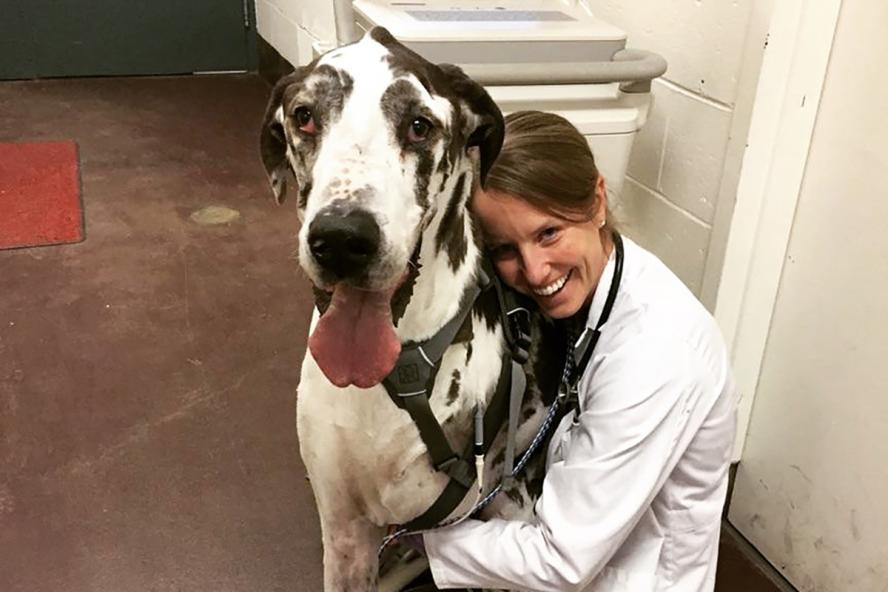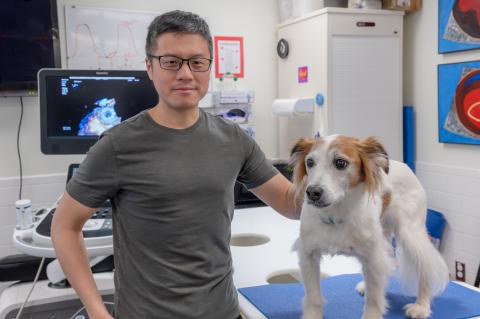The Barkley Fund makes the HeartSmart website possible. This fund supports the advancement of veterinary cardiology and veterinary emergency and critical care medicine through research, collaboration, and training.
The Barkley Fund was established to celebrate a special Great Dane and to honor all those who are devoted to dogs and cats. Barkley suffered from a heart disorder that is almost always fatal. Cummings veterinarians devised an innovative program of medication and diet that helped Barkley live a full, high-quality life.
Barkley's owners established the Barkley Fund to foster ongoing innovation in cardiology and emergency/critical care medicine. The fund provides resources for activities that promote scientific inquiry, collaboration, and training.
In addition to supporting the development of the HeartSmart website, the Barkley Fund has enabled many important studies that have contributed to our knowledge of veterinary cardiology and nutrition at the Cummings School, such as:
- Veterinarians in practice can learn to do a brief Echo to screen cats for heart disease. Learn more.
- Muscle loss (cardiac cachexia) is associated with shorter survival in cats with heart failure
- The role of NT-proBNP values in the successful treatment of heart failure in cats. Learn more.
- Development of an instructional video to teach veterinarians to assess muscle condition score in dogs and cats to identify muscle loss. Watch here.
- The effects of heart disease on quality of life in dogs. Read more.
- The effects of heart disease on quality of life in cats. Read more.
- Benefits of atorvastatin (Lipitor) in dogs with heart failure. Learn more.
- Cats with big heads and larger bones are more likely to have hypertrophic cardiomyopathy. Read more.














